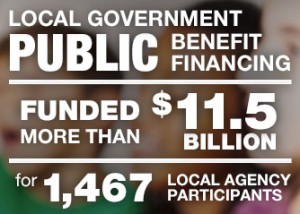When legislators reconvened from their summer recess, I penned a column in which I advised Republicans to be unified and vigilant in opposing efforts by Democrats in the final days of session to expand the size and scope of state government. I also said to keep an eye out for those issues that divide Democrats, because it is in that instance where Republicans, unified, can seize the moment and actually get some wins – governing, as it were, from the minority.
I can think of no better example of where Republican legislators have an opportunity to actually see a positive outcome in this legislative session than with the passage of SB 594 (Hill). Without getting into the technical jargon, this legislation would put and end to an egregious process whereby non-profit entities affiliated with government organizations have been able to literally dump millions of dollars into support and opposition to statewide ballot measures through a financial shell-game.
Let me take a few paragraphs to summarize how this is done, followed with some specific examples of how this dubious but effective technique has been used to the detriment of the freedom and liberty of Californians.
First and foremost, let me introduce you to the Class A offenders: The League of California Cities (“The League”), the California State Association of Counties (“CSAC”). These are Associations whose membership is made up of member cities and counties. Lots of taxpayer funds are paid into these entities, which ostensibly perform a myriad of services in return. It’s not actually those direct tax-dollar contributions that are at issue. But it’s important to understand that the general operations of these groups are largely funded with public moneys.
 This gets a little complicated, but follow along. These organizations worked to establish a state agency that is called the California Statewide Communities Development Authority (say that ten times fast!). This agency, according to their own website, has funded more than $11.5 billion in tax-free bonds for 1,467 government agencies. In essence when counties, cities and until recently redevelopment agencies are looking to borrow money to pay for projects (a frequent occurrence), they use this agency to do it. The agency charges fees as is standard for such arrangements, which have amounted to millions upon millions of dollars.
This gets a little complicated, but follow along. These organizations worked to establish a state agency that is called the California Statewide Communities Development Authority (say that ten times fast!). This agency, according to their own website, has funded more than $11.5 billion in tax-free bonds for 1,467 government agencies. In essence when counties, cities and until recently redevelopment agencies are looking to borrow money to pay for projects (a frequent occurrence), they use this agency to do it. The agency charges fees as is standard for such arrangements, which have amounted to millions upon millions of dollars.
 I bet you could never guess who makes up the Board of Directors of the Development Authority? It’s all stakeholders (current or retired) in the very two Associations I mentioned above – who are not shy about their sponsorship and control of this agency. The image to the right is lifted straight from the Development Authority’s website.
I bet you could never guess who makes up the Board of Directors of the Development Authority? It’s all stakeholders (current or retired) in the very two Associations I mentioned above – who are not shy about their sponsorship and control of this agency. The image to the right is lifted straight from the Development Authority’s website.
Here comes the multi-million dollar question.
Would you consider the millions of dollars in fees paid with taxpayer funds (from nearly 1500 local government agencies) into the Development Authority to be public money?
Let me assure you that the Development Authority, the League and CSAC most certainly do not. Of course using public funds for political purposes, such as funding the direct support or opposition of ballot measure campaigns, would be illegal. But if you consider these funds to be non-public, that then creates a “gray area” into which these groups have plunged with aggressive, multi-million dollar investments into ballot measure campaigns.
Now let’s show how these taxpayer-funded bond fees are “flipped” into ballot measure campaigns.
First, some numbers. In 2006, between the CA Redevelopment Association, CSAC and the League, around $4,750,000 was spent against Prop. 90. Earlier in the decade these same groups spent nearly $4,000,000 in support of Prop. 1A. And fast-forward to 2008 and they spent a staggering roughly $6,340,000 in opposition to Prop. 98 and in support of Prop. 99. (See this all on a spreadsheet here.)
All of these millions of dollars largely originated with transfers of money from the Development Authority into the “non-public funds” accounts at these other organizations, who in turn used them for political spending.
Just a quick reminder: Prop. 1A (2004), which passed, locked in a protection against state government coming in and taking local government funds. Prop. 90 (2006), which passed, would have severely restricted the ability of local governments to use the power of eminent domain (it was narrowly defeated). Prop. 98 (2008) was another attempt to curtail eminent domain abuse and Prop. 99 (2008) was a League sponsored faux-reform of eminent domain, designed to mollify voters without truly curbing most of the abuse (98 failed, and 99 passed).
Also in recent testimony on SB 594, it was revealed that money was also spent in support of Prop. 30, the recently-passed statewide sales tax increase. We still don’t know how much was spent on that.
Is it any wonder that with all of these millions to spend that the positions advocated by CSAC and the League prevailed in all of these elections?
And is it any wonder why these groups have “circled the wagons” in an all out effort to defeat SB 594, which would put a stop to this egregious and dubious practice all together (in addition to bringing about a lot of transparency in an area currently shrouded in darkness)?
I reached out to Jon Coupal, President of the Howard Jarvis Taxpayers Association, which supports the bill. “For years the League of California Cities has been laundering campaign funds through an account labeled a ‘non-public funds’ account. Who contributes into this fund is never disclosed,” Coupal told me. “It is time for this deceptive practice to be shut down.”
This should be an easy bill for all legislators to support, because the practice of using taxpayer funds (and make no bones about it, these are de facto taxpayer dollars in play) for political campaigns is never okay. It is illegal for a reason. Government is supposed to exist under the consent of the governed. But because of this shell game, we see those in government manipulating the very people who put them in office. It’s time to put an end to it.
Powerful interest groups are in play, and I would imagine there might be some division among Democrat legislators. If Republicans stay unified (every Republican supported this bill in the Assembly Judiciary Committee), we can play a significant part in a reform that really does matter.
Seize the moment.


